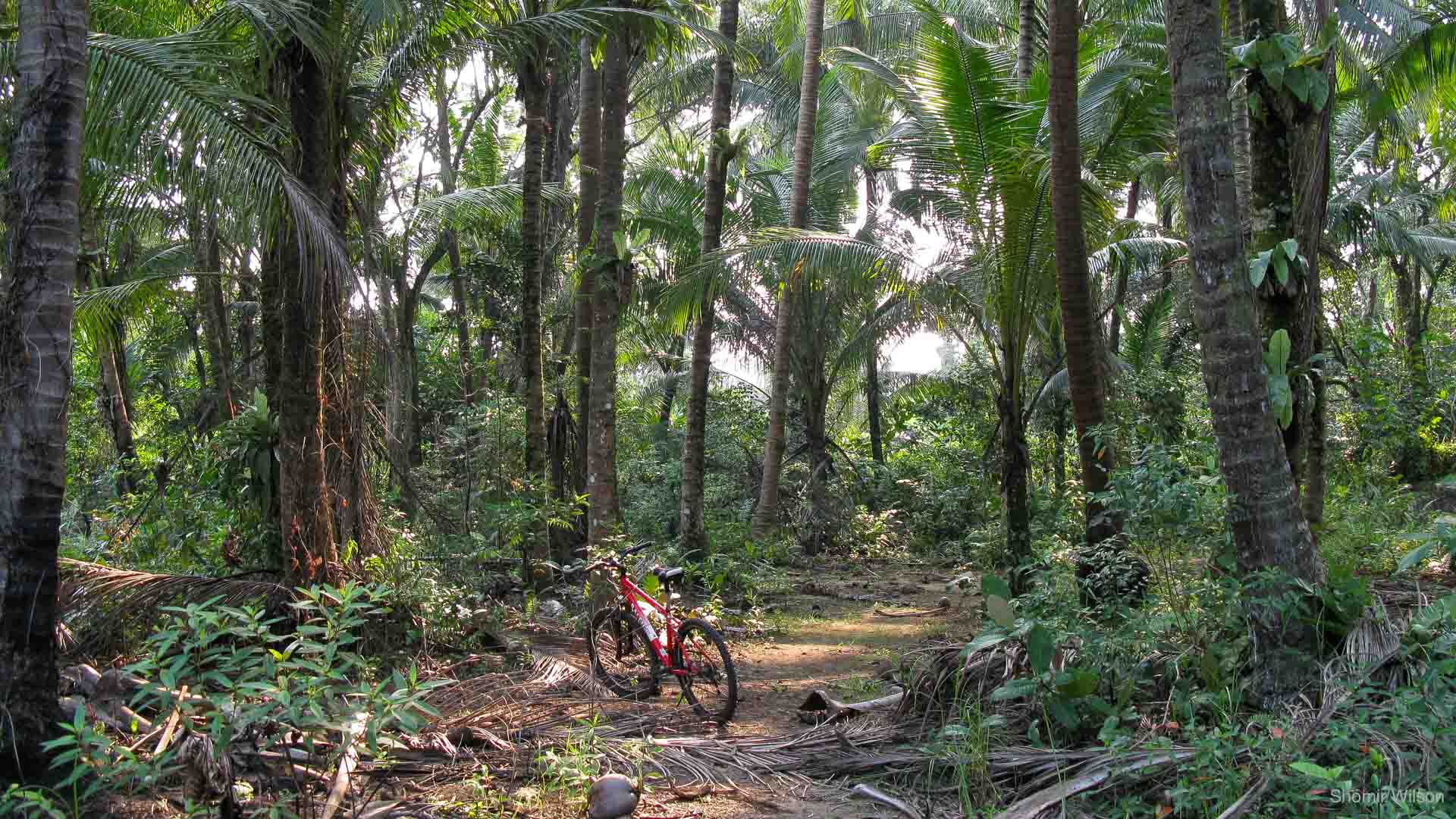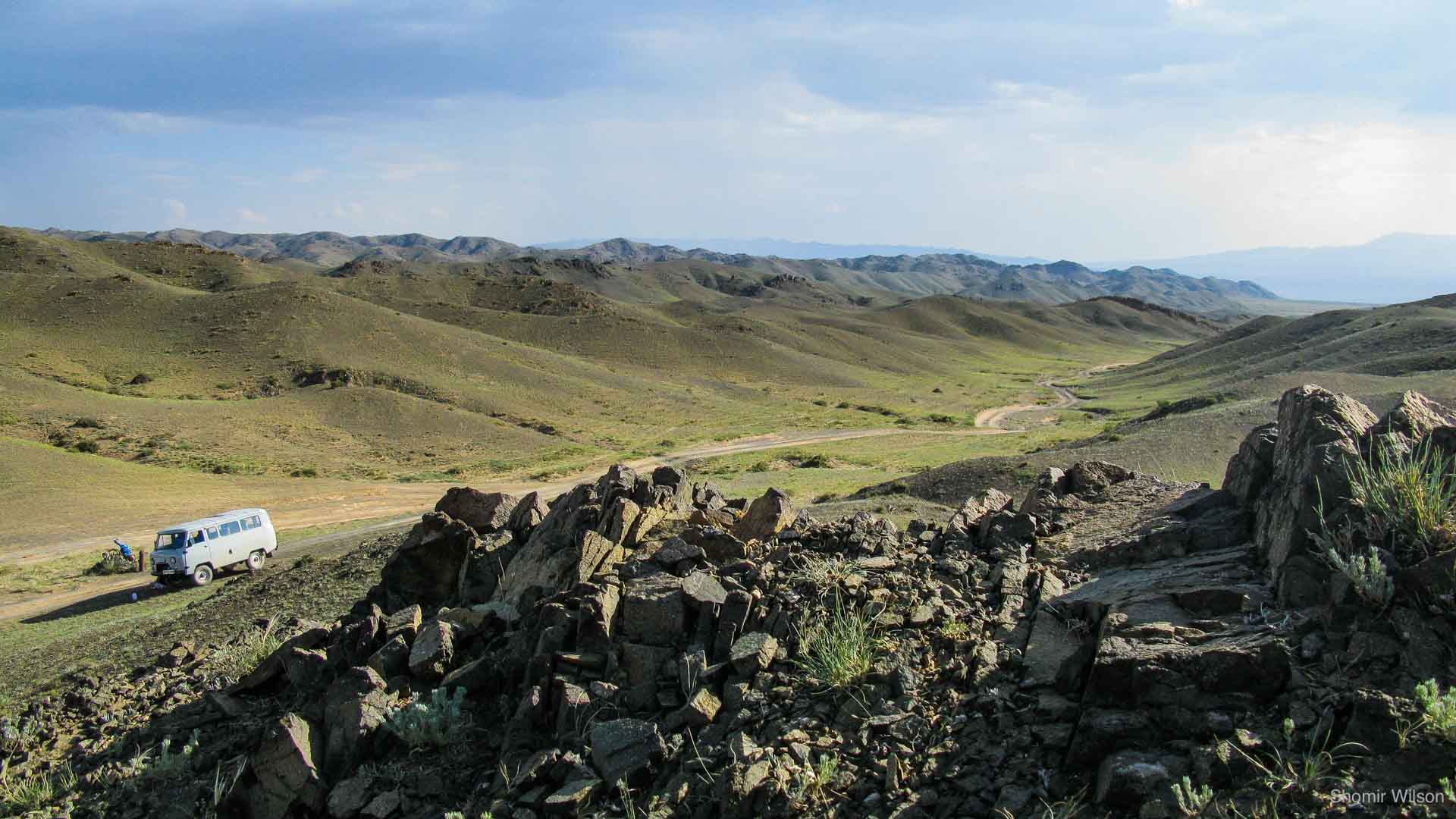Guide for Joining My Lab
This guide is part of my advice pages.
Read This Part First
This is guide for prospective students and visitors who are interested in joining my lab. I've written it as an FAQ. Some of it is intended specifically for prospective PhD students, whom I can advise in the PhD program in Informatics. If you are seeking a summer position, an MS degree, undergraduate research, or a visiting position, then you should focus on the Non-PhD section after reading the rest of this introductory section.
Important preliminary notes:
- Don't be intimidated by the length of this document: I've organized the questions into sections to make it easier to navigate. You probably don't need to read all of it, although you're welcome to if you wish.
- If you decide to email me about joining my lab, please include "read your recruiting note" in the subject line and attach your CV. I might not be able to reply, as I receive a lot(!) of emails, but I will be aware of your interest. If you want to earn a PhD or an MS with my lab, include in the body of your email whether you are a US citizen.
- Avoid using artificial intelligence (AI) to write to me about joining my lab. Writing ability often correlates with qualities I seek in research advisees, so I need you to write the email. If your email seems fully or partly AI-generated (I can sometimes tell), you'll be at a disadvantage.
- If you have questions about IST's graduate programs (including how to apply), check this page and then contact IST's graduate programs if necessary. The policies of the college and the university take precedence over any information in this guide.
This guide is intended to answer questions about working with me. Applicability beyond its intended purpose may vary.
Finally, regardless of your interest in joining my lab, if you find this guide useful then please email me (see "Contacting Me" instructions) or let me know on Twitter.
The Guide
- Basics:
- What is IST? How does it differ from computer science?
- How is being a PhD student different from being an undergraduate?
- Will my tuition be covered? Will I receive a stipend while I am a PhD student?
- What's an RA? What's a TA? What are graduate fellowships?
- What is the relationship between the research a PhD student performs for an RA position and their thesis?
- How do I know if I should get a PhD?
- How do I know whether a source of advice on graduate school is good or not?
- Applying:
- How do I apply to work on a PhD with you?
- Is an undergraduate degree in IST, computer science, or a related field necessary to work with you on a PhD?
- Do I need an MS degree before applying to work with you on a PhD?
- I'm an undergraduate. Do I need to graduate before applying to a PhD program?
- Can you tell me whether my application to the PhD program is likely to be accepted?
- Advisor-Advisee Fit:
- What do you look for in prospective PhD students?
- What is your advising style?
- How do I know if you are the right advisor for me?
- Can you advise me on a project that I chose on my own?
- Preparing to Apply:
- I'm an undergraduate. How can I put myself on a path to work with you as a future PhD student?
- I'm applying from industry or from another graduate program. How can I make myself a compelling applicant to work with you?
- Non-PhD:
- I'm an undergraduate at Penn State. Can I join your lab?
- I'm aiming for an MS, not a PhD. Can I join your lab?
- Do you have openings for interns or undergraduates visiting from other universities?
- Do you have openings for postdocs?
- I have a PhD already and I would like to be a visiting scholar with your lab. Can you host me?
- Miscellany:
- Why do you ask applicants to put "read your recruiting note" in the subject line when contacting you?
- Why can't you advise all the students who want to work with you?
- Why did you write this guide?
- Will I get to travel during graduate school?
- What's the purpose of the pictures in this guide?

Basics
What is IST? How does it differ from computer science?
IST (Information Sciences and Technology) is the study of problems at the intersection of information, people, and technology. At Penn State, the College of IST is an "iSchool" and a member of the iCaucus. IST is interdisciplinary by nature, and our college has no departments: all faculty are part of the same academic unit. Our doctoral students earn a PhD in informatics.
IST has a greater focus on the human and social implications of technology than a typical computer science program, although computer science programs (and iSchools) vary widely. There are more similarities than differences. Prospective PhD students with a computer science background and an interest in my research areas should feel at home in IST, and choosing between IST or computer science will not limit your career options. Since completing my PhD, I have worked in a School of Computer Science (Carnegie Mellon University), a School of Informatics (essentially an iSchool, at the University of Edinburgh), an EECS Department (University of Cincinnati), and IST (at Penn State). I have had no difficulty transitioning between them.
How is being a PhD student different from being an undergraduate?
Although you will take classes during your first few semesters, those will diminish in importance. Instead you will concentrate on work toward a dissertation, which will be your unique contribution toward human knowledge. PhD study is much more self-directed than undergraduate study, although feedback from your advisor and milestones set by the PhD program help you to stay on track and to make steady progress.
Will my tuition be covered? Will I receive a stipend while I am a PhD student?
If you are admitted to our PhD program, it is nearly certain that you will receive free tuition and a stipend (i.e., a fixed regular sum of money to cover living expenses). Most students in IST receive funding from the college, from faculty research grants, from fellowships that they (the students) apply for and win, or from some combination of these sources. Note you may be required to perform research duties and/or teaching duties as a condition of your funding.
What's an RA? What's a TA? What are graduate fellowships?
Within the context of graduate school, RA means "research assistant": a student who is given a stipend and tuition coverage for performing research. An RA often must perform research for a specific project or in a particular direction, because the funding for their position requires it. A TA is a "teaching assistant": a student who is given a stipend and tuition coverage for helping an instructor administer a course. A TA may have greater flexibility in their research direction, but the TA duties take some time to perform.
RA and TA positions are the most common funding mechanisms for PhD students in STEM disciplines. A PhD student might begin either as a TA or an RA, and they may switch between these funding modes multiple times during graduate school. The stipends are modest, but they typically provide enough money for a student to cover their living expenses. Most TAs and RAs do not need to hold other jobs or take on debt during graduate school.
Some academic units use special terminology to distinguish between types of TA-like positions. Within IST, there are three types of positions for students to help administer courses: teaching assistants (TAs) are PhD students, instructional assistants (IAs) are MS students, and learning assistants (LAs) are undergraduates. TAs and IAs receive tuition coverage, but LAs do not. None of these positions require prior teaching experience.
A graduate fellowship is similar to an RA position except the student applies for it directly and proposes their own project as part of their application. Graduate fellowships are offered by a variety of organizations, including governments, nonprofits, and companies. An example for US domestic students is the National Science Foundation's Graduate Research Fellowship Program (GRFP), which I strongly recommend to eligible applicants. Applying for graduate fellowships is also a valuable exercise in thinking about research trajectory, regardless of whether you receive them.
What is the relationship between the research a PhD student performs for an RA position and their thesis?
A student supported by an RA position typically transforms their RA research into part or all of their thesis.
How do I know if I should get a PhD?
Only you can answer this question, but here are some positive signs. Not all of them may apply to you, but most should.
- You enjoy learning, and you want more knowledge than your undergraduate degree provided you with.
- You have spoken with professors who know you well, and they agree that you are prepared for pursuing a PhD. I include this item both because faculty feedback is useful for the decision and because faculty often provide valuable letters of recommendation.
- You want to contribute to human knowledge. A PhD represents your ability to perform independent research, and it enables you to apply for the full range of research-oriented jobs in industry, government, and academia.
- You enjoy writing. This is a fundamental part of earning a PhD: you write conference papers, journal papers, and a dissertation.
- You enjoy working on difficult problems.
- (This item is particularly optional) You might want to become a professor. A PhD is a requirement for professorships at virtually all universities and colleges. Note, however, that a PhD in informatics can be an asset in industry and government positions as well.
Here are some inappropriate reasons for pursuing a PhD:
- You're finishing your current degree program and you're completely ambivalent about what to do next.
- Earning a PhD sounds easier to you than your other options. (It's probably not.)
- Entering a PhD program appeals to you mostly because it satisfies a geographic constraint in your life. (For example, you're not that interested in being a PhD student but it enables you to live near your significant other.)
- You feel you deserve a PhD for work you have already done.
- You feel pressure from people around you to earn a PhD, but you are uncertain whether you want to.
Finally, the finances of earning a PhD are often misunderstood. In some subjects, including most of the liberal arts, PhD students pay tuition. However, most PhD programs in STEM subject areas (this includes IST) will cover your tuition and pay you a modest stipend that is sufficient for your living expenses. In other words, you will not have to pay the university for your PhD; instead, the university will pay you as you work toward it, because your activities will support your advisor's lab or your academic unit.
How do I know whether a source of advice on graduate school is good or not?
Look for two things:
- Specificity to your discipline: Some of the basic parameters of graduate school depend on what you are studying and what degree you seek. For example, PhD students in information science and computer science (my disciplines) should generally expect to receive stipends and tuition coverage, either from the university or from a fellowship they apply for and win. Meanwhile, it's not uncommon for PhD students in the liberal arts to have to pay their way through.
- A nuanced perspective: If a source of advice is unrelentingly negative or positive about graduate school, it should be disregarded. There are enormous variations in students' experiences, motivations, and personal circumstances. If you are talking with a professor or other professional in your field, they should ask you questions to get to know you and your goals.

Applying
How do I apply to work on a PhD with you?
You will need to apply through Penn State's Graduate School, since individual faculty do not accept applications directly. You can find instructions to apply on IST's website. The graduate school application allows you to enter names of faculty whom you are particularly interested in working with. Include my name and I will notice.
Sometimes prospective students email me to let me know they're applying; that's strictly optional. If you decide to contact me, keep in mind that I might not be able to reply and it's probably too early for me to know whether I will have an opening for you to join my lab. I will need to read all the applications I receive and make decisions about my lab's research directions for the coming academic year.
Is an undergraduate degree in IST, computer science, or a related field necessary to work with you on a PhD?
No. I encourage students from any undergraduate background to apply, as long as they satisfy most of the items in the list of things that I look for in applicants.
Do I need an MS degree before applying to work with you on a PhD?
No.
I'm an undergraduate. Do I need to graduate before applying to a PhD program?
No, but you should be prepared to start the PhD program in the following academic year. It's common for undergraduates to apply to PhD programs during the fall semester of their final year, graduate in May, and then begin the PhD program in late August.
Can you tell me whether my application to the PhD program is likely to be accepted?
My ability to gauge admissions decisions is limited. In general, applicants who have a potential advisor interested in bringing them onboard are most likely to be admitted.
Back to Top
Advisor-Advisee Fit
What do you look for in prospective PhD students?
These things:
- Strong writing skills are a huge plus. Although I may accept students who are still developing their writing abilities, those who already possess them will have an easier time producing publications and their dissertation. When I read graduate applicants' writing samples, I look for attentiveness at all levels, from overall organization and coherency down to word choice and copyediting. I tend to give more credit to writing samples that demonstrate the applicant's ability to write well on their own, i.e., without someone else editing their work.
- Critical thinking skills are difficult to directly assess, but they are important for research. I look for evidence of them in writing samples (again, writing skills are important) and in conversations with potential advisees.
- Programming skills are essential. Applicants should be comfortable with Python or Java, and preferably both. Web development skills are a plus, as I sometimes ask my students to create web demos of their work.
- Attentiveness to detail: When a student demonstrates this, it allows me to focus on enabling their best work and helping them reach their goals.
- Prior coursework in natural language processing and/or machine learning: I find that students who have taken traditional courses (i.e., in a physical classroom) on these topics are better prepared than students who take courses via MOOCs (e.g., through Coursera). Also, a statistics course and an upper-level algorithms course are assets.
- Prior research experience: Working with a professor's lab is good, either through a summer REU or for a duration of one year or more. Having a publication accepted to a major venue is a plus. Note that I generally do not count class projects as research experience unless they continue long after the end of the course and produce a publication. I also rarely count projects performed entirely on one's own, unless they result in a publication.
- Personal attributes: Grit is valuable in graduate school, because research is difficult by nature and rejected manuscripts are practically inevitable. (As a graduate student, my first three attempts at a first-author publication were rejected.) Prospective students also should be comfortable working by themselves and as part of a team, since both will be necessary. Time management skills are important, and the ability to work on multiple projects at once contributes to likelihood of success.
An implicit priority in the above list is compatibility with my own style as a researcher. To the extent that I have been successful, I believe the above qualities have enabled me.
What is your advising style?
This answer applies to my advisees at all levels: undergraduates, MS students, PhD students, and visitors.
People often describe advisors on a scale from technical ("hands on") to managerial ("hands off"). I tend toward being managerial. I expect my advisees to be self-driven and capable of teaching themselves skills that their coursework cannot provide. I encourage my advisees to structure their own day-to-day activities with attention toward short-term and long-term goals. I provide advisees with research problems to work on, resources to make their work possible, feedback on their progress, guidance on manuscripts and publishing, and mentorship toward their career goals. Advisees in my lab tend to run their projects while I run the lab as a whole.
I prefer to schedule periodic meetings with each of my advisees, either every week or every two weeks, though some circumstances (such as submission deadlines) require greater frequency. I also may ask students to attend lab meetings and project meetings with collaborators. Students should come to meetings prepared to present their results, typically with slides. I encourage students to take lots of notes during meetings, and in one-on-one discussions I am always willing to pause to let them catch up.
I expect all advisees to aim for research results that they can publish. PhD students should aim to have several first-author publications before they graduate; the exact number depends on factors such as their research direction and their career goals. MS students should aim to have at least one first-author paper submitted for publication, and undergraduates should aim to be a co-author on at least one submission. I discuss expectations with other lab members, such as postdocs and visitors, on a case-by-case basis.
Regarding physical presence in the lab, my guidelines for advisees' work locations are flexible within limits. I encourage advisees to work in one place consistently, such as the lab, as part of developing effective work habits. Being physically in the lab is generally not a requirement, though I may require it for special projects or for students who need help establishing work routines. With regard to travel, advisees should let me know if their absence will interrupt their work or if they will be gone for a week or longer, since unexpected things can happen in research and we may need to meet. Also, advisees should always let me know if they will need to miss a scheduled meeting. A week's notice is preferable.
Finally, I value effective communication: often I observe that a well-expressed good idea has more value than a brilliant idea expressed in a way that people struggle to understand. I expect students to continuously improve upon their writing and presentation skills, using feedback from me and from outside sources. There is no apex to these skills, and I also continue to improve.
How do I know if you are the right advisor for me?
Read this guide and my research page, and browse some of my recent publications. You should be able to identify two or three papers that interest you and provoke you to speculate on future work. If you are still uncertain about fit but you sense a possibility, you are welcome to contact me. Remember to put "read your recruiting note" in the subject line of your email, and attach your CV.
Can you advise me on a project that I chose on my own?
Maybe. It depends on three factors: your funding source, my research priorities, and my ability to provide adequate supervision. Sometimes I can grant students flexibility within a topic, and sometimes I can give greater leeway to students who bring their own funding (e.g., from a graduate fellowship that they won). However, I expect students that I advise to follow my advice on the direction of their research.
Back to Top
Preparing to Apply
I'm an undergraduate. How can I put myself on a path to work with you as a future PhD student?
Check IST's website for the PhD program requirements. Satisfy as many items as you can in the list of things that I look for in applicants. Get involved in undergraduate research starting in your sophomore or junior year. If you have an option to write a senior thesis, take it.
I'm applying from industry or from another graduate program. How can I make myself a compelling applicant to work with you?
Check IST's website for the PhD program requirements. Satisfy as many items as you can in the list of things that I look for in applicants. If you can, ask your supervisor or thesis advisor to write you a letter of recommendation. Otherwise, find someone who knows your work well and can write a strong letter in support for your application. If you are in industry, at least one of your letters should be from a faculty member at a college or university.
Back to Top
Non-PhD
After reading this section, all prospective non-PhD advisees should also read about my advising style.
I'm an undergraduate at Penn State. Can I join your lab?
Possibly. The best time to approach me about this is during your first or second year of college. Your final year tends to be too late to start working on undergraduate research, though I am sometimes supportive of students who wish to complete senior theses with me, if publishing their thesis work in a conference or journal is one of their goals.
You should be prepared to commit to working with my lab for at least two semesters (i.e., fall and spring, or spring and fall). I ask undergraduates in my lab to make meaningful contributions to research, and it's difficult with less time than that.
If you decide to contact me, include (1) whether a paid position is essential for you, (2) whether you are willing to sign up for course credit for research, and (3) that you're willing to commit to two semesters of participation. I'm not always able to pay undergraduate researchers, although they sometimes find scholarships and stipends from other sources that support undergraduate research. Talking with your academic advisor may be helpful to find those opportunities.
I'm aiming for an MS, not a PhD. Can I join your lab?
Possibly. Occasionally I have a GRA opening or an hourly wage opening for an MS student, but it's less common than for PhD students. If you decide to contact me, include whether a paid position is essential for you.
Do you have openings for interns or undergraduates visiting from other universities?
Typically, no. I have openings for interns or undergraduates visiting from other universities only when I explicitly advertise such openings on my website, which happens rarely. Inquire only if you see an ad.
Do you have openings for postdocs?
I have openings for postdocs only when I explicitly advertise openings, which happens rarely. Inquire only if you see an ad.
I have a PhD already and I would like to be a visiting scholar with your lab. Can you host me?
Possibly, if (1) you will not require funding from me, (2) you can stay for longer than a summer or one semester, and (3) you possess the qualities I look for in PhD applicants. I consider these requests on a case-by-case basis.
Back to Top
Miscellany
Why do you ask applicants to put "read your recruiting note" in the subject line when contacting you?
I search for that phrase in my email archive when I'm looking for prospective students to fill openings. If you do not use that phrase, your email might not be in my search results at a crucial moment.
Why can't you advise all the students who want to work with you?
Even when a prospective advisee meets my requirements and seems to be a good fit for my advising, other limitations sometimes prevent me from advising them.
One frequent limitation is how research funding works. The lab's RA positions and hourly wage positions typically are funded by grants that I receive, and grants are competitive: only a fraction of the proposals that a professor submits are funded. Additionally, grants come with restrictions on how they can be spent, in terms of topics and types of positions that they can support. Sometimes there are surplus funds on one project while a need for funds exists on a different project, but transferring funds isn't an option.
PhD students who have alternate sources of funding, such as TA positions or graduate fellowships they apply for and receive, are sometimes easier to bring aboard.
Undergraduates sometimes offer to work as volunteers (i.e., uncompensated), but I try to avoid that arrangement when possible because of reasons relating to strength of commitment and project stability. Working for course credit is occasionally an option, but it's still subject to my time constraints.
Time is sometimes a limitation. Sometimes prioritizing the success of current lab members means that I cannot admit new ones. I offer both advising and mentorship to my lab members, and these commitments are substantial. Additionally, I balance advising students with other professional responsibilities, such as teaching, managing the lab, applying for grants, and service duties.
Why did you write this guide?
I want to give prospective students lots of information to help them make their decisions. Also, knowledge of how graduate school works is unevenly distributed. I've written this guide for a wide audience that includes prospective students who may be unfamiliar with some of the common expectations.
Will I get to travel during graduate school?
Probably. (Applicants who have browsed my website may have noticed my accumulation of travel related to professional activities.) Graduate students in IST are generally reimbursed by their advisor's research funds or by the college to travel to conferences where they have papers accepted. I am also supportive of PhD students spending a summer at an internship where they can acquire new skills that will contribute to their dissertation research.
What's the purpose of the pictures in this guide?
I added them to break up the text; all of them are mine. I am a photographer in my spare time.
